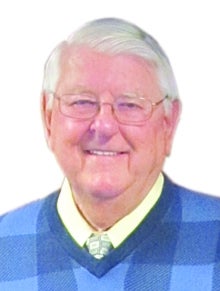Jim Harvey
Title: CEO, E.L. Harvey & Sons, Westborough
Hometown: Westborough
Residence: Westborough
Education: Westborough High School
Jim Harvey is forward thinking in an evolving industry, yet he can still remember what it was like to haul rubbish back in the 1930s and ‘40s. When we sat down recently, he held up a picture of a trash-hauling vehicle from the ’40s: a wagon drawn by two horses. Today, his family-owned, Westborough-based company — which celebrated its centennial in 2011 — is much more than a trash-hauling firm. It processes waste and recyclables, and spreads the values of recycling to its customers.
How rapidly does your industry change?
It changes every day.
When I first started, I used to separate cardboard, take it to Worcester and sell it. Everybody thought I was crazy (and would ask), “Why are you doing it?” I was doing it to cut down on my dump fees. Back then, dump fees were like $10 a ton. Now (that) they’re $70 or $80, it even pays to do it more.
It’s nice to be green, and we want to be. It’s a great label to have. But if we can’t make money, we can’t afford to keep doing it. That’s the bottom line.
How easy or difficult has it been to embrace that change? It seems to me your company has been on the leading edge or cutting edge of change.
We’ve always tried to be a step ahead of everybody. We see the future and we act on it now. (For example), there are some single-stream (recycling) facilities around here. So we’re building one right on our property (just over the Westborough line in Hopkinton).
Educating people about waste management is a big part of your company’s mission. How much do people out there not know?
A lot. You’d think everybody would know about recycling; what is recyclable and what isn’t recyclable. It’s a constant education. We have people who go out and go to schools. We try and train (cities and towns). You’d be surprised at the (number) of people who don’t want to do it and don’t do it.
Have they been “getting it” over the past few years?
It’s much better. When we first started, we’d go do green days (with some of their business clients). That was unheard of years ago. Now it’s a big day. (Today) we start two or three weeks before (Earth Day, April 22) and (finish) two or three weeks after. We go into their cafeterias and show them what they should be recycling, how they should do it, where they should put it, what happens to it afterward. Years ago … they had no experience with it. But now they’re catching on more and more.
Your business recently celebrated its 100th anniversary. How does a family keep the business going, changing and evolving, and yet still be a family?
A lot of companies last 100 years. That’s nothing. But a family business to last 100 years? That’s difficult. My father started the business and he started it (by embracing the golden rule) and we continued it in our company. When we have a family meeting on Tuesdays — we call them executive meetings but we used to call them family meetings — we argue, of course we do. We have disagreements. But we have a thing that when we walk out the door at the end of the meeting, we all think the same way.
What advice would you give to other family-owned businesses?
That’s a tough one, but be determined and be engaged.

